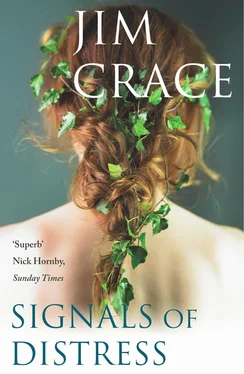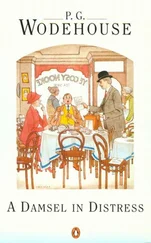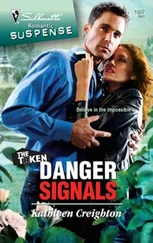‘Well, then … So that’s the way the bad luck settles in. It’s muck and nettles from now on,’ she said, and looked at Aymer in the bending flattery of light, defying him to say another word.
Aymer kept the silence easily. He didn’t know what he could say. He knew, though, what to do. He’d take the Bowes beneath his wing. A shilling was a paltry sum, a blushing sum. It was what he’d paid to George for merely fetching Mr Phipps. Aymer would give the Bowes more than a shilling’s worth if he could find the means … to what? To be straightforward and suggest the benefits for everyone if Miggy … Margaret. He’d have to call her Margaret … would come back on the next Tar with him to be his wife. He wouldn’t mention love. He couldn’t love the girl, not like the love that danced till dawn in fairytales or books. He was too old for dances and for dawn. But he could liberate the girl. What better dowry could there be? He’d break her chains of poverty, just like he’d snapped the chains of slavery for Otto. He looked across the room at Miggy’s silhouette. Her face was fine enough. Her skin was pale and clear. Mrs Margaret Smith, a healthy country catch, a woman less than half his age. He wouldn’t want a wife too well experienced. He didn’t need to win her heart. But he could court and win her head. Her body, too. She’d use the bedside chamber pot. He’d run his hands across her thrushy thighs. Her hair would hang in one loose tress. It would be best, he thought, to talk first to her mother. She’d understand the common sense of his proposal. She wouldn’t have much choice.
Aymer felt light-headed. Excitement? Fish fumes? Or the gin?
‘I’ll go,’ he said. ‘I cannot trust myself to find the way when it is dark.’ And then to Ralph, ‘Will you be walking with me, sir? A companion shrinks the miles.’
‘Gladly, Mr Smith,’ he said. He couldn’t tell the truth, that he would rather stay and spend the night exactly where he was. Both men stood up, pulled on their coats and jostled at the door. Whip ran through their legs into the open air.
Aymer made a parting speech: ‘I promise you I will return within a day or two. I will consider some proposals that might ease your condition. You have accepted my shilling with reluctance, but you will, I hope, accept my friend ship and my help with …’ He could not find the proper words. With greater deference , perhaps? Or with docility ? He left the farewell uncompleted. For the third time that day he offered his hand to Miggy Bowe. She stretched her arm and touched him on his finger ends, much in the way that she had touched the African’s toes on the beach the day before, much in the way a child would dare to touch a jellyfish. His hand was damp and hot.
‘I would’ve had that cow if you in’t come,’ she said.
Aymer Smith was not a Revolutionist. He could not abet the theft and slaughter of a cow, and square it with his conscience, or with the excise men, or — more to the point — with Walter Howells, who’d taken on the task of rounding up the cattle from the Belle . But what if the cow was not alive? ‘I saw three dead cows, ready salted, in the shallows of the wreck,’ he said. ‘That’s flotsam, isn’t it? I do not know the finer points of law. But isn’t wreckage floating in the sea the property of those who find it? And what is a lifeless cow but wreckage of a sort — just leather, horn and flesh? Who will oppose you taking meat out of the sea? It is fishing by another name. Besides, the flesh will putrefy unless you rescue it. It is almost a duty to oppose such waste.’
And so they took a handcart, a wood axe and some heavy knives and went down to the sea. The Bowes and Ralph waded in, despite the cold. Whip ran barking at the waves. But Aymer didn’t want to chance his boots. He used his strapped arm as an excuse for staying idle. One cow was almost beached. Between them and the free help of the waves, the Bowes and Ralph managed to drag it into the shallows. Its orifices drained of water and lance eels squirted through a thousand punctures in the hide. Its eyes had gone, and crabs were feeding on the titbits of the skull. Its tongue was white and bloodless. There was some evidence already of putrefaction in the head. The women would not take the tongue or brains. But the clammy, musty, tainted meat from the neck and clod would still be edible if washed in ashy water and then roasted. They went to work without emotion, beginning at the leg and cutting meat from off the bone up through the topside, silverside and flank into the aitch bone. The salty water caused the fibres of the open flesh to contract and drew the juices from the cow so that the sea became a rosy brine. The women stood in water that was tumbling with tiny, feeding fish. By the time they’d reached the rump and sirloin the water and the sand were red. Gulls were circling so close that the mayhem of their wings was louder than the sea.
Aymer found the fish more shocking than the cow. He was used to seeing fish on plates, cooked, gormless, dressed, not tumbling like molten lead, not smelling so. He retreated up the sand. He couldn’t help. He had only one arm. They posted him to stand with Whip next to their handcart, to keep birds off. No tumbril in Robespierre’s Paris could have been as bloody or macabre, or smelled as bad. He turned his back to it and looked along the shore, where turnstones and oyster catchers were picking through the beached and draining kelp. Aymer had seen these seaweeds many times before, and knew their names in Latin: Ascophyllum nodosum, Fucus vesicolosus, Laminaria cloustini . There was a folio in the offices of Smith & Sons, with over fifty specimens pressed, labelled and isolated on smooth sheets of white paper like doilies or like fans. When they were boys, Aymer and Matthias had learned to recognize each species. ‘I suppose that now,’ thought Aymer, ‘there’ll have to be a folio with specimens of Monsieur Leblanc’s common salt.’ He knew the shapes of the weeds, perhaps. But the colours were a shock. The folio seaweeds for all their dry and flattened delicacy were only brown and black. But on the beach the living kelp was as polished and as leathery as a prince’s boot, in mustards, crimsons, purples, tans. In the shallows, where the tide was frowning white round rocks and bars, the deeper kelps and wracks spread darkly on the surface, or danced arabesques in undulating groves of weed, like spirit-women at a ball in heavy satin frocks. Aymer looked beyond the kelp, beyond the figures in the sea, beyond the Belle abandoned in the suds, into the feeble, sombre sky. There was so little daylight left, that winter afternoon.
‘We’ll have to go now, Ralph,’ he called.
They left the Bowes to push their meaty handcart home alone, and set off with the dog, at a pace too fast for Aymer, towards Wherrytown. Miggy — her hands as red as two anemones — called out to them, ‘You’ve got to come again!’ Both men replied, ‘I will!’
At first, Ralph’s shoes made rodent noises as he walked. But soon the sea drained out of them. His legs and feet were wet and cold.
‘We’ve done a decent job today,’ said Aymer. ‘They’ll not want for meat.’
‘We have,’ said Ralph, smiling to himself.
‘Good women, too. That is, when one considers all the deprivations in their life. The daughter, don’t you think, might make a tolerable wife for a man? She has the country virtues.’ Ralph did not reply.
The path was level as it skirted round the bay, and soft underfoot. First there were dunes which shielded them from the cold and bloody solitudes of the seashore. Then there were salty flats with skew trees and flood-tide debris, and tracts of open, windblown heath where grasses mocked the sea with mimic waves and clapping stalks matched the distant, wet applause of tumbling pebbles in the tide. But soon they had to scramble over rocks, and Aymer, with one arm in a sling, made clumsy progress. Ralph waited on the headland for his companion to catch up. Someone had set a wooden bench across two rocks and Aymer, when he arrived, sat breathlessly on it, while Whip went rabbiting and Ralph displayed the patience of a sailor by carving ‘R.P.’ in the bench with his clasp knife. Other names were carved in it with dates: Thos. Pearson 1829; C. Stuart, Edinbgh. May ’33; Bartolli, Claudio, ROMA 1831. There were initials, too, with hearts and arrows. Aymer, motionless, was feeling cold and hungry and wearied by the ceaseless noise and wind. The inn was still two hours’ walk away. He’d allow himself a minute more of rest. He tried to make his weariness seem purposeful by identifying, for Ralph, the hornblende and the feldspar which added the white and flesh-red garnish to the granite thereabouts. He grubbed out coloured stones which enamelled the turf at his feet and rubbed them clean between his fingers. He broke free crusts of salt and mustard lichens. He murmured his familiarity with them, by naming them in Latin and in English. Ralph shook his head at his companion’s learning. ‘I don’t know names for those,’ he said. And then, ‘I do know other things …’ Ralph’s was a stranger’s ignorance. Aymer’s was a stranger’s knowledge.
Читать дальше












